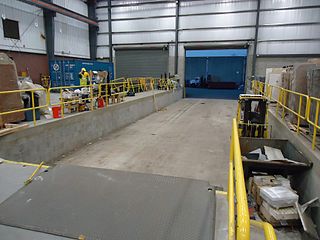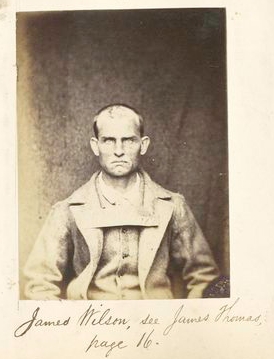Environment most often refers to:

Transportation planning is the process of defining future policies, goals, investments, and spatial planning designs to prepare for future needs to move people and goods to destinations. As practiced today, it is a collaborative process that incorporates the input of many stakeholders including various government agencies, the public and private businesses. Transportation planners apply a multi-modal and/or comprehensive approach to analyzing the wide range of alternatives and impacts on the transportation system to influence beneficial outcomes.

Logistics is the part of supply chain management that deals with the efficient forward and reverse flow of goods, services, and related information from the point of origin to the point of consumption according to the needs of customers. Logistics management is a component that holds the supply chain together. The resources managed in logistics may include tangible goods such as materials, equipment, and supplies, as well as food and other consumable items.

A penal colony or exile colony is a settlement used to exile prisoners and separate them from the general population by placing them in a remote location, often an island or distant colonial territory. Although the term can be used to refer to a correctional facility located in a remote location, it is more commonly used to refer to communities of prisoners overseen by wardens or governors having absolute authority.
The original meaning of the word shuttle is the device used in weaving to carry the weft. By reference to the continual to-and-fro motion associated with that, the term was then applied in transportation and then in other spheres. Thus the word may now also refer to:
BST, Bst or bst may refer to:

Penal transportation was the relocation of convicted criminals, or other persons regarded as undesirable, to a distant place, often a colony, for a specified term; later, specifically established penal colonies became their destination. While the prisoners may have been released once the sentences were served, they generally did not have the resources to return home.
Transport is the movement of people or goods from place to place.
Connectivity may refer to:
Transportation network may refer to:
Distribution may refer to:

The convict era of Western Australia was the period during which Western Australia was a penal colony of the British Empire. Although it received small numbers of juvenile offenders from 1842, it was not formally constituted as a penal colony until 1849. Between 1850 and 1868, 9,721 convicts were transported to Western Australia on 43 convict ship voyages. Transportation ceased in 1868, but it was many years until the colony ceased to have any convicts in its care.
UTC most often refers to Coordinated Universal Time.
Transport theory may refer to:
Transportation ballads are a genre of broadside ballads that concern the transportation of convicted criminals, originally to the American colonies and later to penal colonies in Australia. They were intended to serve as warnings of the hardships that come with conviction and thereby a deterrent against criminal behavior. Transportation ballads were published as broadsides—song sheets sold cheaply in the streets, at markets and at fairs. Many have passed into the folk tradition.

Transport divide refers to unequal access to transportation. It can result in the social exclusion of disadvantaged groups.
This page is based on this
Wikipedia article Text is available under the
CC BY-SA 4.0 license; additional terms may apply.
Images, videos and audio are available under their respective licenses.





